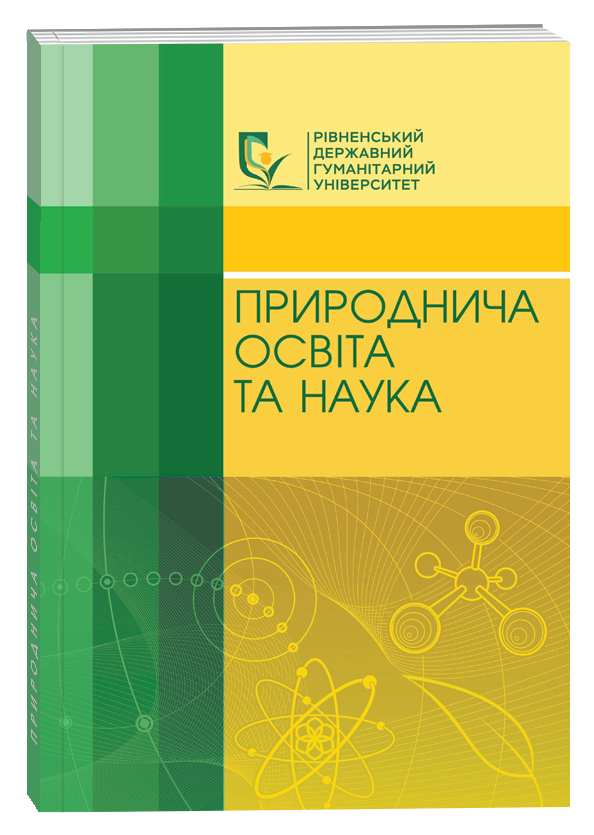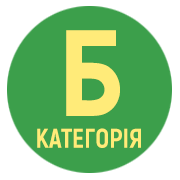THE ROLE OF PHYSICAL CULTURE IN THE PROCESS OF SOCIALIZATION OF STUDENT YOUTH
Abstract
The article examines the role of physical culture in the process of socialization of student youth. It is noted that physical culture is an important tool for the formation of social skills, development of communication skills, leadership qualities and the ability to work in a team. Physical culture is the most important means of forming a person as a person. Exercise has a positive impact on the consciousness, will, moral qualities and character traits of young people. The role of physical culture in life is very important, since physical exercises have a positive effect on human life and the state of the internal system. The influence of physical activity on overcoming social barriers, prevention of deviant behavior and integration of students from different social groups is analyzed. Particular attention is paid to the education of moral and ethical values, promotion of a healthy lifestyle and strengthening of physical and mental health of students, since physical culture and sports play an important role in the formation of a harmoniously developed personality of modern youth. Determining the role of physical culture in the socialization of the individual has been and remains the subject of intensive research, first to understand the essence of physical education, and then physical culture in general. The article shows ways to improve the educational process through the integration of physical culture, the use of modern technologies and innovative approaches. It is concluded that physical activity is an effective means of developing social skills. Team sports contribute to the development of responsibility and cooperation, individual sports achievements contribute to self-esteem, and participation in sports competitions strengthens stress resistance and discipline. These mechanisms are important elements of students’ socialization. Integration of physical education into the educational process contributes to the harmonious development of a student’s personality, including his or her social skills. Promising areas are expanding access to physical activity for all categories of students, including those with special needs, using innovative technologies to improve the effectiveness of physical education, and developing inclusive programs that provide equal opportunities for students from different social groups to participate in physical activity. The research materials may be useful for teachers, coaches and researchers working in the field of physical education and youth socialization.
References
2. Кравченко Т. В. Фізична культура і спорт як засіб соціалізації молоді та інтеграції у суспільство. Науковий вісник Ізмаїльського державного гуманітарного університету. 2021. № 48. С. 66–72. URL: http://visnyk.idgu.edu.ua/ index.php/nv/article/view/666?utm_source=chatgpt.com
3. Кузнєцова О. В. Спорт як чинник соціалізації студентської молоді. Науковий часопис НПУ імені М. П. Драгоманова. Серія 15. Науково-педагогічні проблеми фізичної культури (фізична культура і спорт). 2021. № 3К (133). С. 45–48. URL: https://journalsofznu.zp.ua/index.php/sport/article/view/2456?utm_source=chatgpt.com
4. Петренко О. В. Значення фізичної активності студентської молоді у процесі формування здорового способу життя. Теорія та методика фізичного виховання. 2018. № 1. С. 221–223.
5. Петренко О. В. Розвиток фізичної культури і спорту як важливий напрям соціалізації студентської молоді. Вісник Чернігівського національного педагогічного університету імені Т. Г. Шевченка. 2018. № 152 (1). С. 123–126. URL: https://journals.indexcopernicus.com/api/file/viewByFileId/451729?utm_source=chatgpt.com
6. Топчієва Г. О., Смовженко А. М. Роль фізичної культури у формуванні здорового способу життя студентів. URL: https://dspace.nuft.edu.ua/server/api/core/bitstreams/fa5ebd72-f144-42d1-86f1-cdde6d43b2dc/content
7. Фурдуй С., Ніфака Я. (2018). Роль фізичної культури в процесі соціалізації студентської молоді. Молодий вчений. 2018. № 1 (53). С. 395–399. URL: https://www.molodyivchenyi.ua/index.php/journal/article/view/5320?utm_ source=chatgpt.com
8. Bailey, R., Hillman, C., Arent, S., & Petitpas, A. (2013). Physical Activity: An Underestimated Investment in Human Capital? Journal of Physical Activity and Health, 10(3), 289–308. https://doi.org/10.1123/jpah.10.3.289
9. Chatzipanteli, A., Digelidis, N., & Papaioannou, A. (2015). Self-Regulation, Motivation and Social Behavior in Physical Education. Educational Psychology, 35 (3), 347–363. https://doi.org/10.1080/01443410.2014.920079
10. European Commission. (2020). Study on the Contribution of Sport to Economic and Social Development in the EU. URL: https://op.europa.eu/en/publication-detail/-/publication/39d5f519-1208-11eb-9ac9-01aa75ed71a1
11. Maksymchuk, B., Pohrebniak, D., Roshchin, I., Drachuk, A., Romanenko, V., Ovcharuk, V., Ovcharuk, V., & Maksymchuk, I. (2022). Effective Decision-Making for Extreme Situations in Sports Coaching. Revista Romaneasca Pentru Educatie Multidimensionala, 14 (3), 510–521. https://doi.org/10.18662/rrem/14.3/623
12. National Center on Safe Supportive Learning Environments. (2021). How Physical Education Promotes Social and Emotional Learning. URL: https://safesupportivelearning.ed.gov
13. Ovcharuk, V., Maksymchuk, B., Ovcharuk, V., Khomenko, O., Khomenko, S., Yevtushenko, Y., Rybalko, P., Pustovit, H., Myronenko, N., Syvokhop, Y., Sheian, M., Matviichuk, T., Solovyov, V., & Maksymchuk, I. (2021). Forming Competency in Health Promotion in Technical Specialists Using Physical Education. Revista Romaneasca Pentru Educatie Multidimensionala, 13 (3). URL: https://lumenpublishing.com/journals/index.php/rrem/article/view/2669
14. Physical Activity Guidelines Advisory Committee. (2018). Physical Activity Guidelines for Americans, 2nd edition. URL: https://health.gov/paguidelines/second-edition
15. Redchuk, R., Doroshenko, T., Havryliuk, N., Medynskii, S., Soichuk, R., Petrenkо O., Pavelkiv, R., Rybalko, P., Maliar, N., Maliar, E., Chornodon, M., & Boretskyi, V. (2020). Developing the Competency of Future Physical Education Specialists in Professional Interaction in the Field of Social Communications. Revista Romaneasca Pentru Educatie Multidimensionala, 12 (4), 289–309. https://doi.org/10.18662/rrem/12.4/346
16. Sport England. (2019). Tackling Inactivity and Social Isolation through Physical Activity. URL: https://sportengland.org
17. UNESCO. (2015). Quality Physical Education: Guidelines for Policy-Makers. URL: https://unesdoc.unesco.org/ ark:/48223/pf0000231101
18. World Health Organization (WHO). (2018). Global Action Plan on Physical Activity 2018–2030: More Active People for a Healthier World. URL: https://www.who.int/publications/i/item/9789241514187






